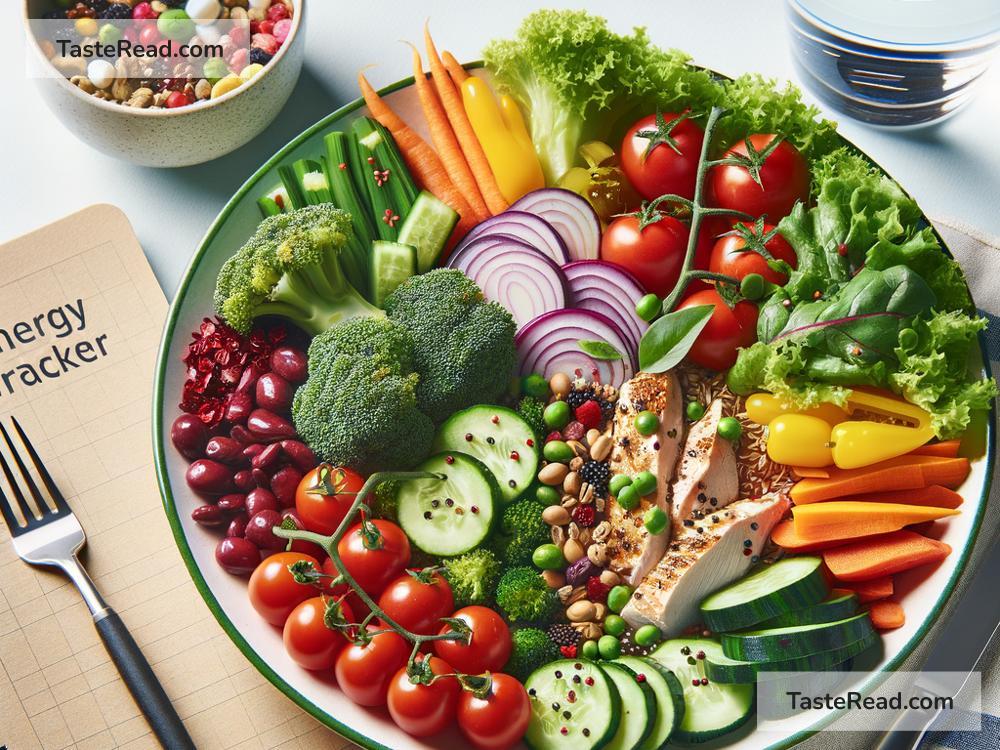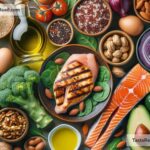Understanding the Connection Between Diet and Energy Levels
Have you ever felt tired after eating a heavy meal or energized after snacking on fresh fruit? The food we eat greatly affects how much energy we have throughout the day. While it’s common to think of food simply as fuel, it’s much deeper than that—what we eat impacts not just how much energy we have but also how long that energy lasts and whether it supports overall health.
In this blog article, we’ll explore the connection between diet and energy levels, using simple language to make sense of this important relationship. By understanding this connection, you can make better food choices to feel more energized, focused, and balanced every day.
What Is Energy?
To tackle this topic, let’s start with an easy fact: food gives us energy. But what does that really mean?
Energy is what our bodies need to function—whether it’s walking, thinking, or simply breathing. We get energy from food in the form of calories. Think of calories as tiny units of energy that power everything we do. When we eat, our body takes the nutrients from food and turns them into energy using a process called metabolism.
But not all calories work the same way. The type of food we eat greatly affects how quickly our energy is produced and how long it lasts.
The Role of Carbohydrates
One of the major nutrients that fuel energy in the body is carbohydrates. Foods like bread, rice, pasta, fruits, vegetables, and even sweets contain carbohydrates. When you eat these foods, your body breaks them down into glucose (a type of sugar), which is then used for energy.
There are two main types of carbohydrates:
1. Simple carbohydrates (like candy, soda, and pastries) give you quick bursts of energy but don’t last long. After eating them, you might feel energetic for a little while but crash soon after.
2. Complex carbohydrates (like whole grains, beans, and starchy vegetables) provide slower, steadier energy. These foods take longer to break down, which keeps your energy levels steady for a longer time.
If you want longer-lasting energy, complex carbohydrates are the smarter choice.
Protein for Sustained Energy
Protein is another essential nutrient that supports energy levels. Foods like meat, fish, eggs, beans, nuts, and dairy products are high in protein. While protein isn’t the body’s first choice for energy, it plays a key role in helping to sustain energy throughout the day.
Protein also helps repair and build tissues in your body, keeping your muscles strong and your immune system functioning. Adding a source of protein to every meal or snack can help you avoid feeling drained later.
For example, pairing a piece of fruit with a handful of almonds makes for a satisfying snack that keeps you fuller and more energized than fruit alone.
Fats and Energy
Fats often get a bad rap, but they’re an important part of a healthy diet. Healthy fats—like those found in nuts, seeds, avocados, olive oil, and fatty fish—provide concentrated energy for your body. They take longer to digest, which makes them a great source of long-lasting fuel.
Not all fats are good for your energy levels, though. Avoid processed trans fats (found in junk food and fried snacks) and limit saturated fats (found in creamy or greasy foods). These can make you feel sluggish instead of energized.
The Importance of Vitamins and Minerals
In addition to carbs, protein, and fats, your body also needs vitamins and minerals to produce energy effectively. Nutrients like iron, magnesium, and B vitamins play a big role in energy metabolism.
For example:
– Iron helps carry oxygen from your lungs to the rest of your body, so low levels of iron can make you feel very tired. Foods like spinach, beans, and lean meats are iron-rich.
– Magnesium helps your muscles and nerves work properly, reducing fatigue and boosting energy. It’s found in foods like nuts, seeds, and dark leafy greens.
– B vitamins help turn food into energy. You can find them in whole grains, eggs, and dairy products.
Eating a wide variety of foods ensures you get all the vitamins and minerals your body needs to keep your energy levels high.
Stay Hydrated!
Let’s not forget water. Dehydration can make you feel tired and sluggish, no matter how healthy your diet is. Drinking enough water throughout the day helps your body work efficiently, delivering nutrients and oxygen where they’re needed.
Don’t wait until you’re thirsty—sip on water regularly, and try adding hydrating foods like cucumber, watermelon, and oranges to your meals.
Watch Out for Energy Zappers
While eating the right foods can boost your energy, some foods and habits can drain it. Processed junk foods, sugary treats, and caffeinated drinks may give you a short-term energy boost, but they often lead to a crash later on. This crash leaves you feeling more tired than before.
Similarly, skipping meals or overeating can throw off your body’s energy balance. Eating regular, balanced meals keeps your energy steady and helps you avoid fatigue.
Conclusion
The connection between diet and energy levels is clear: what you eat plays a big role in how you feel throughout the day. By choosing foods rich in complex carbohydrates, proteins, healthy fats, and important vitamins, you can fuel your body for optimal energy.
The next time you reach for a snack or plan a meal, think about how it will affect your energy. A simple switch from chips to a handful of nuts or from white bread to whole-grain can make a big difference in keeping you energized and ready to tackle the day.
Your energy levels are in your hands—or rather, on your plate! Make smart food choices, and your body will thank you with lasting energy and better overall health.


